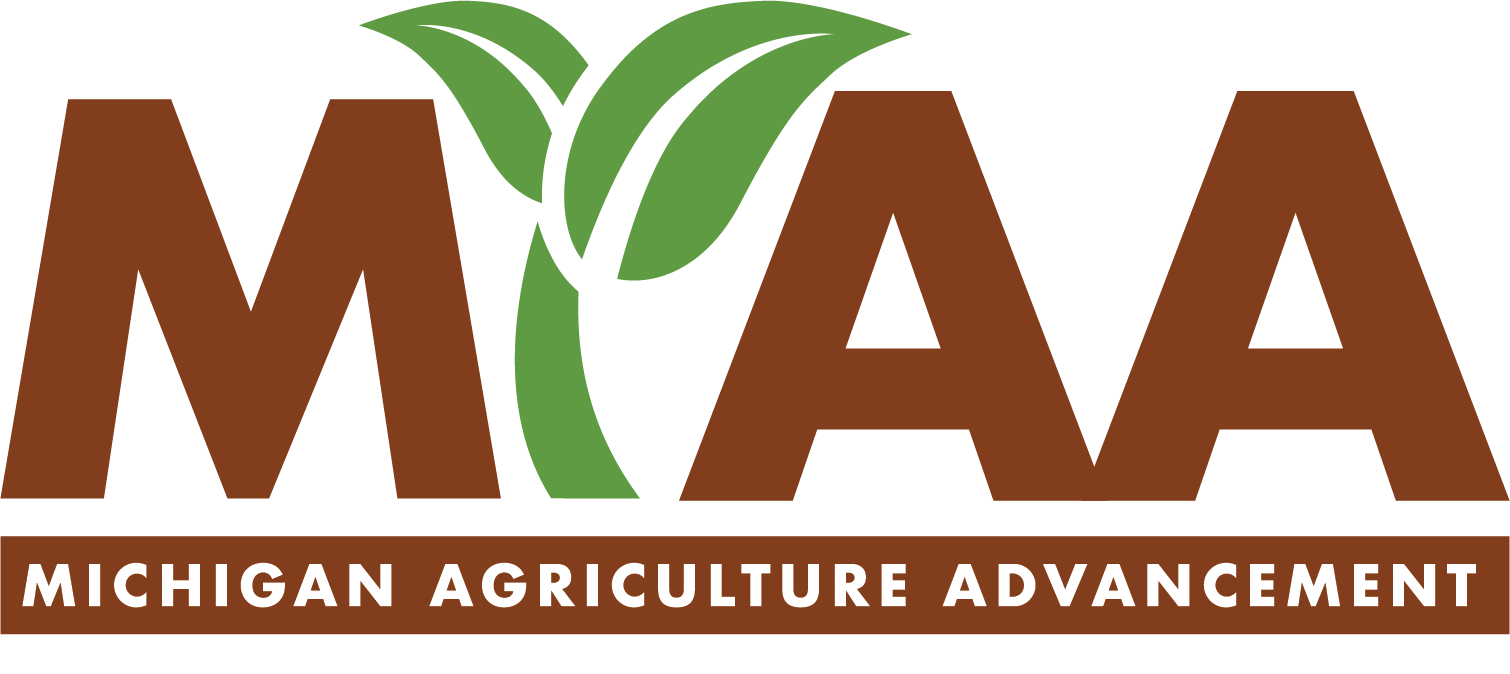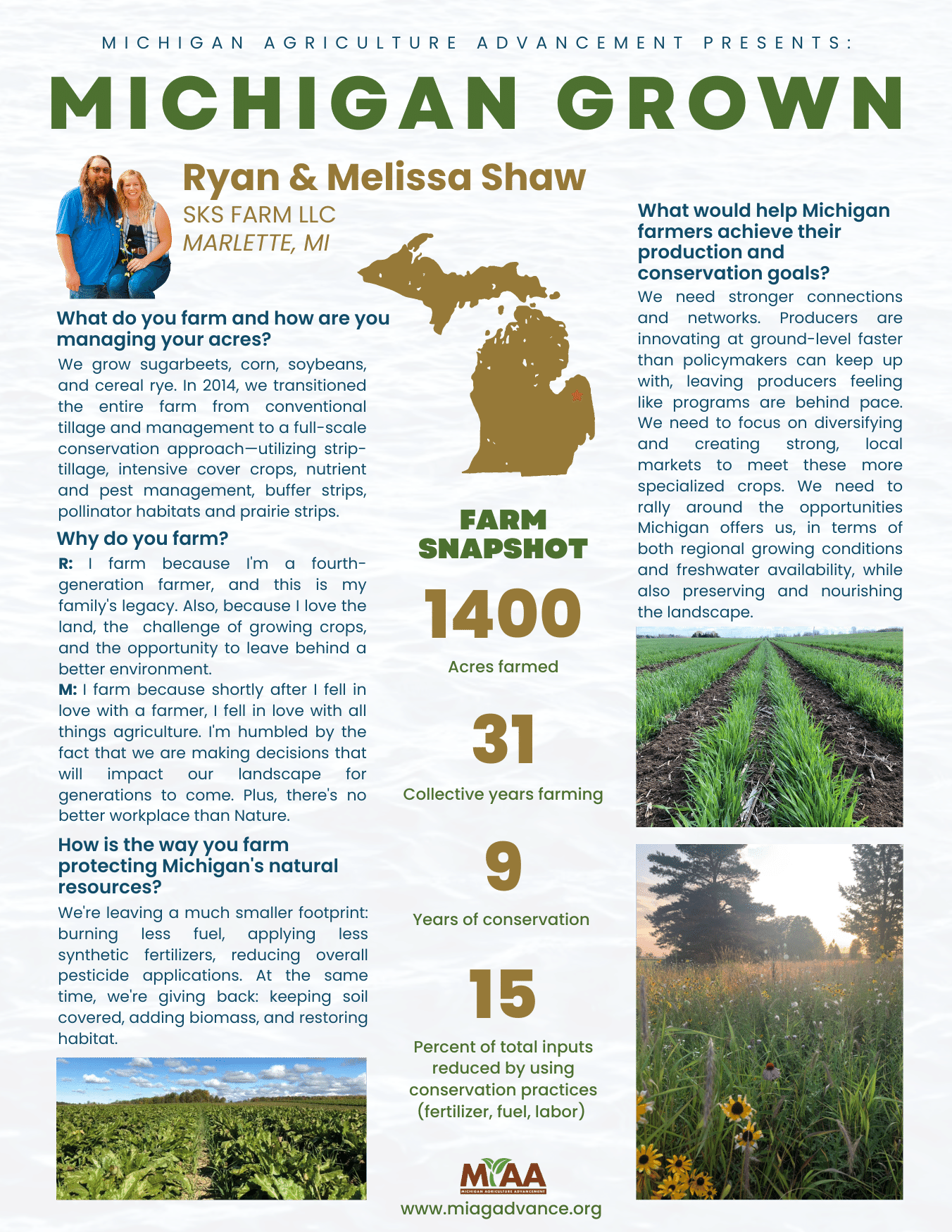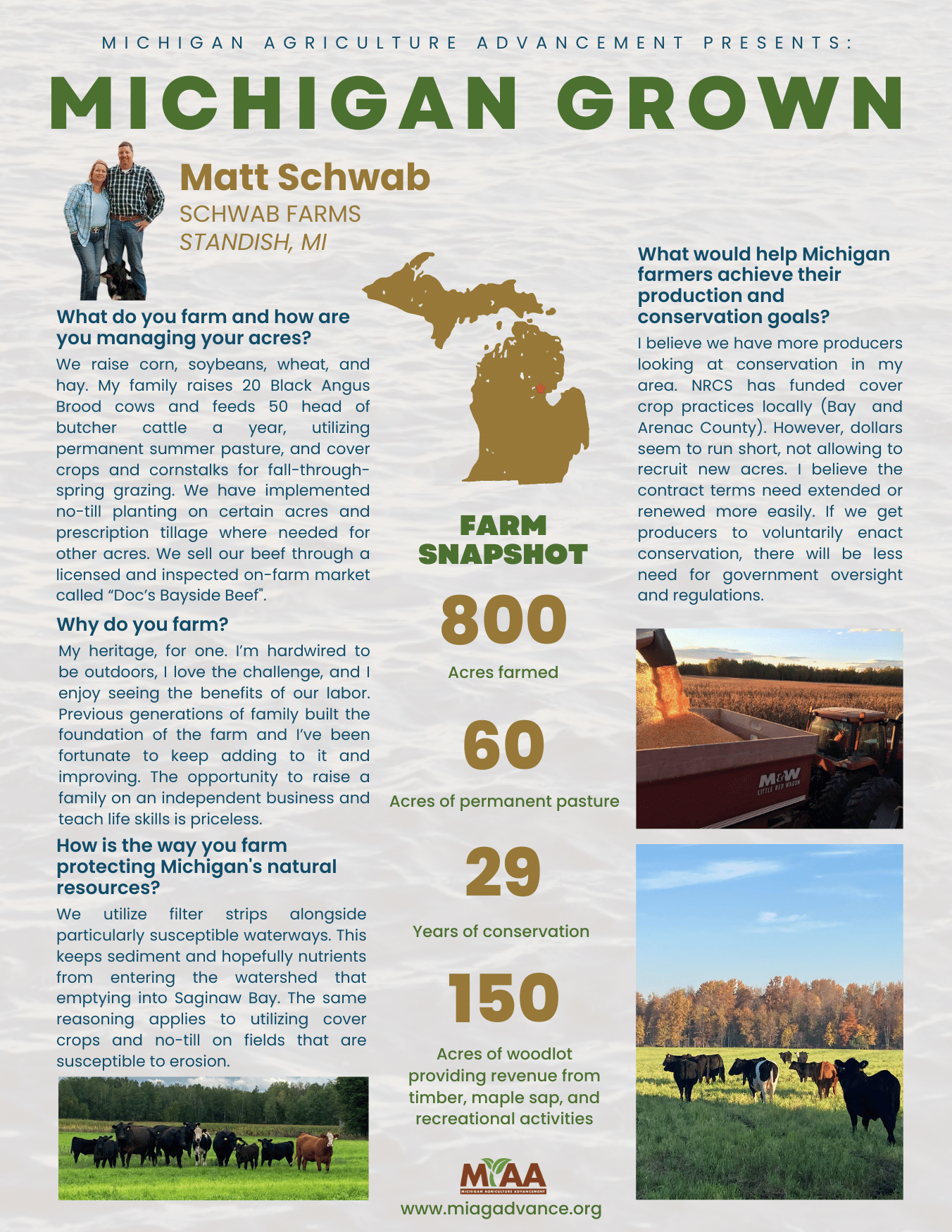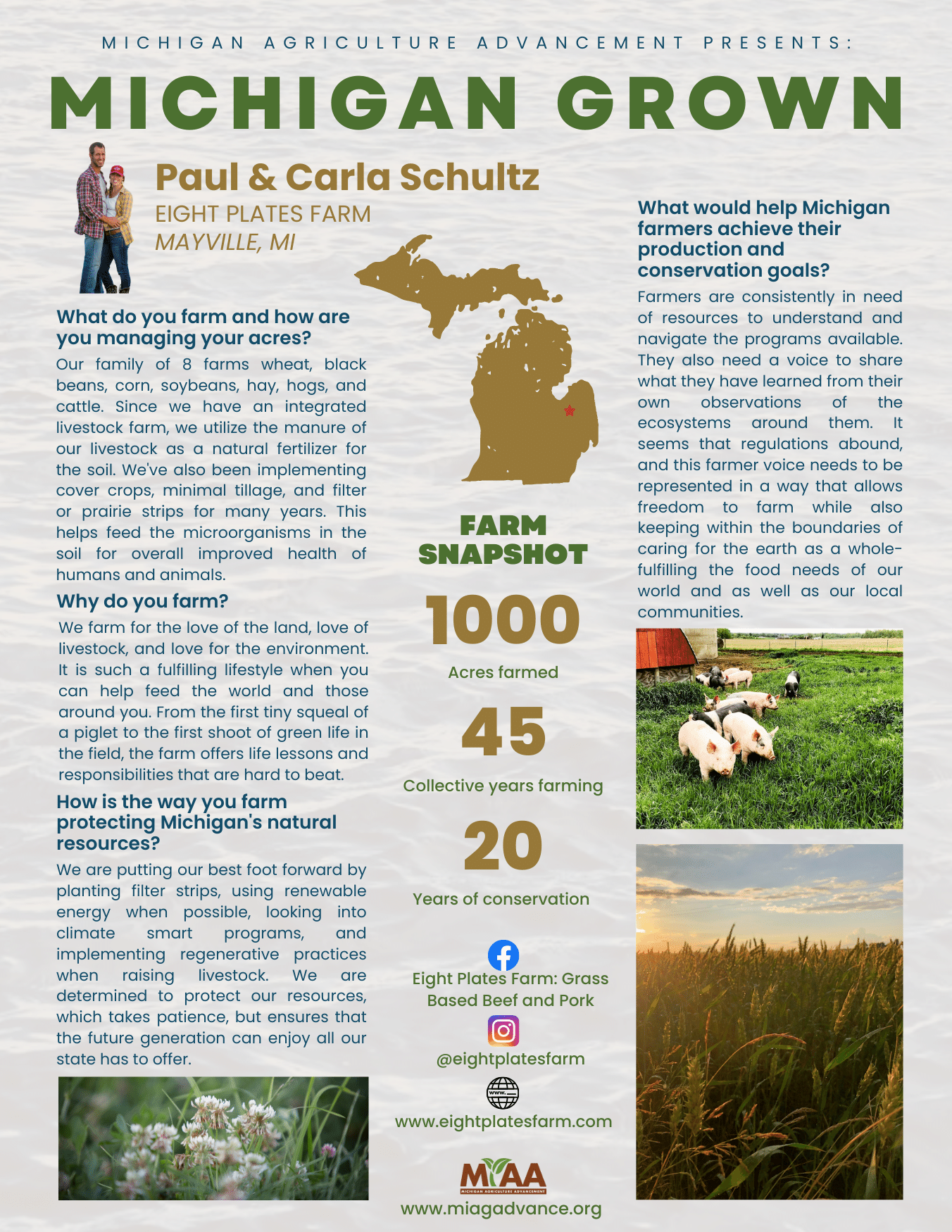Projects
Researching solutions to advance Michigan agriculture
Michigan Grown: Meet MI Innovative Farmers
Meet Ryan and Melissa Shaw from Marlette.
Meet Sherman Reed from Eau Claire.
Meet Matt Schwab from Standish.
Meet Paul and Carla Schultz from Mayville.
Meet Claire Smith from Addison.
Meet Joel Layman from Berrien Center.
Meet TC Collins from Ypsilanti.
Clean Water, Healthy Food Systems, and a Stable Climate: Creating Collective Action Across Michigan
Midwestern field crop agriculture stands at a tipping point: the grand challenges of climate change, rural community demise, pesticide resistance, and degraded soils and waters abound across multiple economic, social, and environmental dimensions. Farm incomes have reached their lowest levels in decades, in part due to an overreliance on a few key commodity crops (e.g. corn and soybean). In short, conventional field crops are not making farmers much (if any) money, are eroding farms’ natural resource bases, and degrading water quality. A small but growing group of producers, academics, and agribusinesses are embracing the paradigm shift towards improving soil health in order to improve economic sustainability. Decades of basic and applied research have identified a range of production practices that limit the need for inputs such as tillage, fertilizers, and pesticides, thereby improving soil health, increasing climate resilience, and decreasing environmental impacts. There is a growing awareness that, for example, improving soil health is an effective way to increase farm profitability, reduce water pollutants, and buffer farms against increasingly extreme climates. However, adoption of these practices by farmers remains low on both a state and national level. Research efforts into better understanding the acceptance and implementation of conservation cropping systems have identified a wide range of factors behind these poor adoption rates (Prokopy et al. 2008). The vast majority of resources expended by federal agencies, land-grant universities, and Cooperative Extension are spent attempting to alleviate the financial and knowledge barriers to practice adoption (Reimer 2015), to little relative gain in either adoption rates or sustainability outcomes. Government agencies and philanthropic institutions have spent millions of dollars annually trying to develop the next “silver bullet” technology or incentive program to entice farmers to change behavior. The result has been programs and initiatives which elicit short-term change, but generally fail to deliver long-term, landscape-wide change (Claassen et al. 2018). This is a primary shortcoming in the current system that we seek to address. This project initiates innovative social, political, and market support to enable long-term, landscape-wide change aimed at: reducing nutrient and sediment loading into surface waters; mitigating and adapting to climate change in agricultural landscapes; and, rethinking food system policies that better aligns with environmentally sustainable farming practices and expanding access to food.
This project aims to revitalize Michigan’s food system to find solutions and synergies at the intersection of agriculture, water quality, and climate change.
- Identify policy and economic tools for Michigan
- Build new state-wide, cross-sector networks
- Connect innovative and adaptive farmers across the state
Funding provided by the Fred A. and Barbara M. Erb Family Foundation.

Innovative Approaches to Expand the Adoption of Soil Functional Practices
Conservation agriculture systems have the potential to increase soil health and support farm resilience. These systems include practices such as reduced tillage, cover crops, diversified crop rotations and integrated crop/livestock production. Adoption of these practices remains low among farmers, despite long standing efforts to promote conservation. This project directly engaged farmers and farm advisors to better understand barriers to adoption and work toward improving conservation practice implementation.
Participants indicated a range of challenges that can prevent farmers from adopting conservation practices, from personal and on-farm barriers to lack of support from policies and markets. The two main themes that summarize these barriers are 1) a lack of choices in the crops, markets and products that farmers have access to and 2) a lack of connections between key stakeholders. To address these barriers, farmers and ag professionals identified four priority areas to increase conservation agriculture across Michigan:
1. More diverse and robust markets,
2. Accessible and flexible conservation programs,
3. Strong agricultural communities,
4. Investments in human capital to support conservation and innovation.
Funding provided by the Michigan Department of Agriculture and Natural Resource Fertilizer Research Fund and the Erb Family Foundation
.
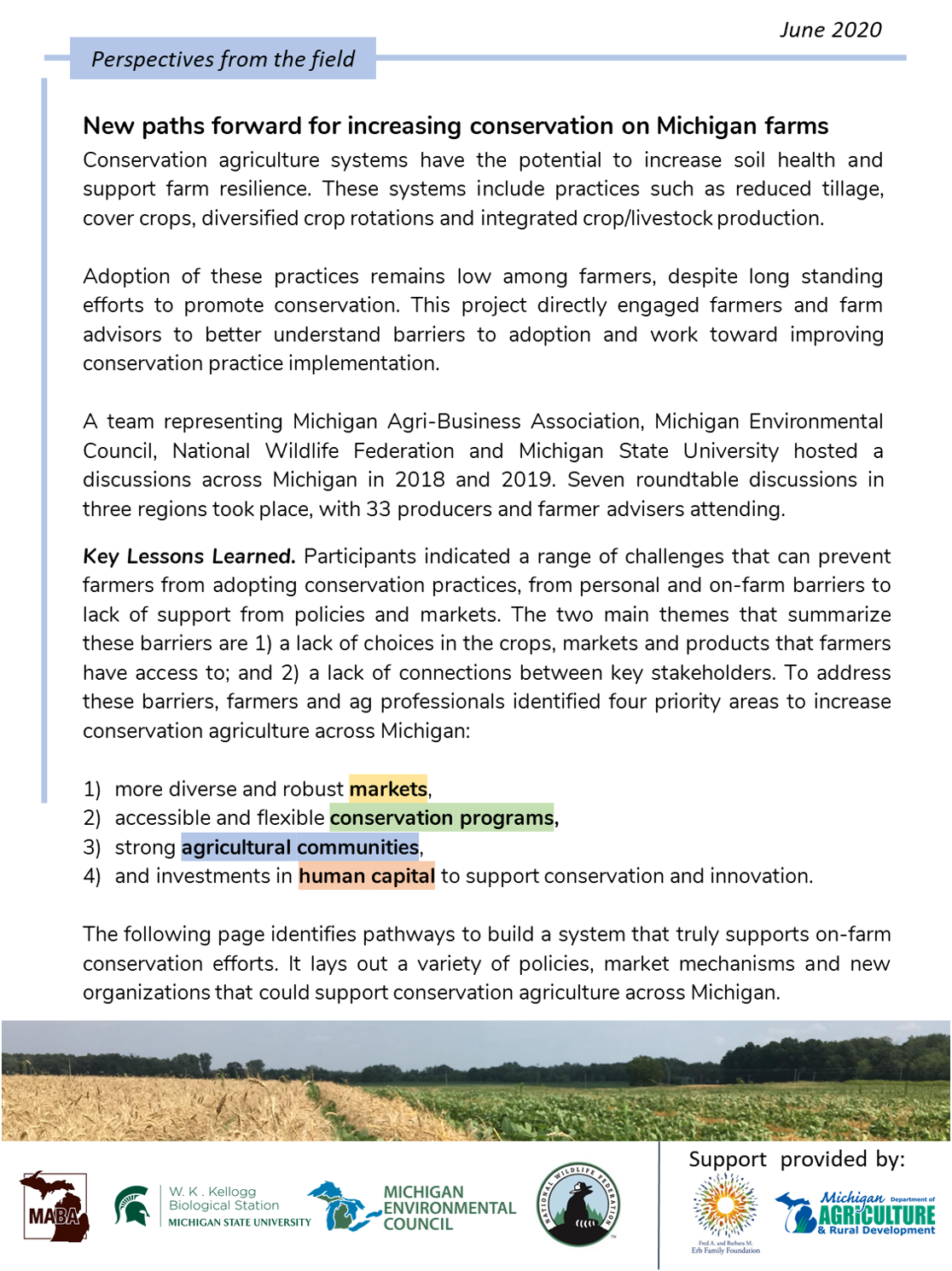
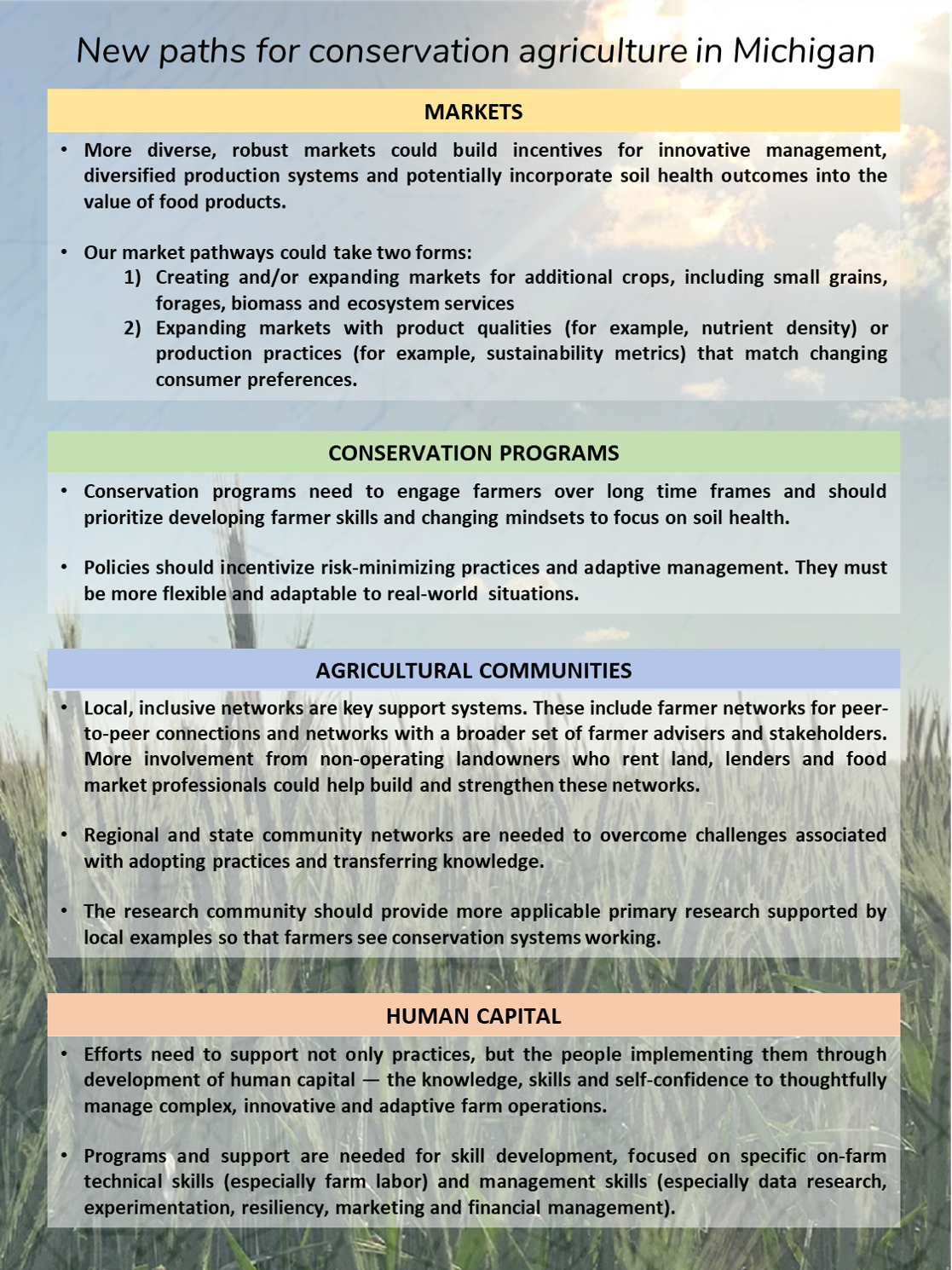


Our Mission & Approach
Michigan Agriculture Advancement empowers alternatives to the commodity agriculture system that has prioritized production efficiencies at the expense of farm resiliency, production flexibility, food value, and environmental impacts. On the farm level, MiAA supports the work of innovative farmers building soil health and diversifying crop rotations. Recognizing that the value of these changes extends beyond the farm through improved environmental outcomes and enhanced local food economies, MiAA advocates for the policies and investments needed to achieve a stronger agriculture system in Michigan.
